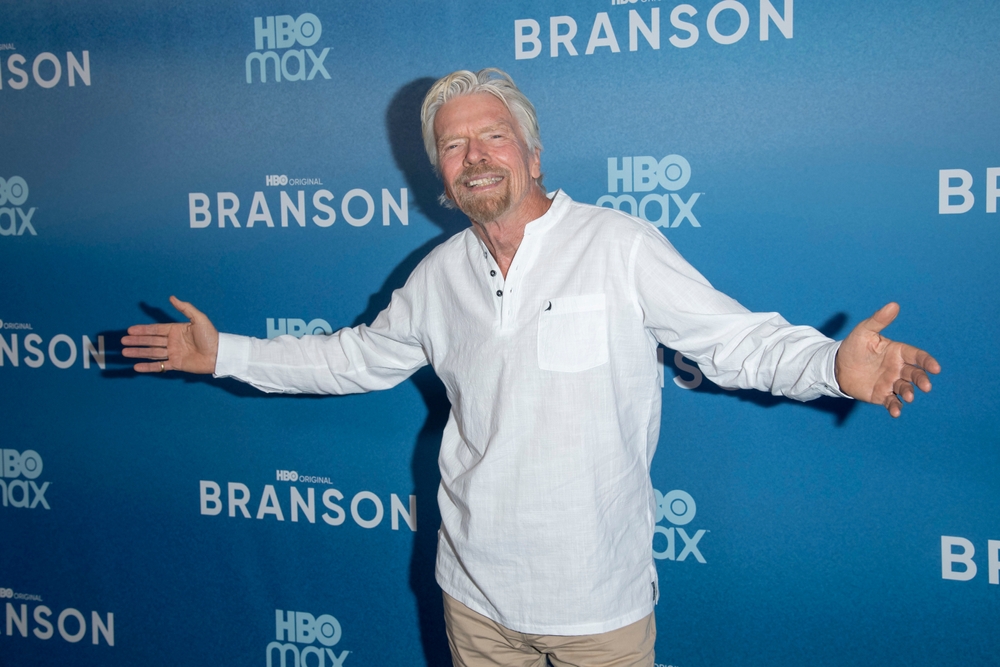Richard Branson, the flamboyant British entrepreneur behind the Virgin Group, remains one of the mos recognisable business figures in the world. Known for his daredevil publicity stunts, relaxed style, and appetite for risk, Branson has turned a student magazine and a mail-order record business into a multi-sector global empire. Despite a turbulent few years that saw parts of his fortune fluctuate, his net worth in 2025 is estimated to be around £2.4 billion, according to the latest figures from Forbes.
The Early Days of Virgin
Branson was born in Surrey in 1950 and struggled with dyslexia throughout school, eventually leaving education at the age of 16. His first venture was Student magazine, followed by a mail-order music business that laid the groundwork for Virgin Records. By the 1970s, he had launched the now-iconic Virgin label, signing acts like the Sex Pistols, Culture Club, and later, global megastars like the Rolling Stones and Janet Jackson.
The sale of Virgin Records to EMI for nearly £1 billion in 1992 was one of Branson’s earliest windfalls, and while he was reportedly devastated by the emotional impact of selling the label, it gave him the capital to diversify. From that point, Virgin became not just a brand, but a sprawling business group encompassing airlines, railways, mobile phones, financial services, health clubs, and even space travel.
The Virgin Empire
Virgin Group today comprises more than 40 companies operating in over 35 countries, across sectors as diverse as aviation, media, telecoms, travel, health, and leisure. Branson has never owned 100% of all these companies outright; rather, the Virgin brand is often licensed or partially owned in partnership with other investors. Still, his shareholdings and licensing agreements ensure significant annual income.
Among the most well-known ventures are Virgin Atlantic, Virgin Media, Virgin Money, Virgin Hotels, and Virgin Voyages, the latter being his bold entry into the luxury cruise industry. He has also backed Virgin Orbit and Virgin Galactic, his space tourism venture which made headlines in 2021 when Branson himself became one of the first civilians to fly to the edge of space aboard the Unity 22 mission.
Turbulence and Recovery
Despite his immense wealth, Branson’s fortunes have seen ups and downs. The COVID-19 pandemic hit parts of the Virgin empire hard, particularly the travel and leisure divisions. Virgin Atlantic narrowly avoided collapse in 2020, undergoing a £1.2 billion rescue deal after Branson controversially sought government support. His request drew criticism from some quarters, as he is a resident of the British Virgin Islands and does not pay UK income tax.
Still, Branson managed to navigate the crisis, injecting personal capital and restructuring debts. Virgin Galactic, meanwhile, has had a rocky stock market performance since going public via SPAC in 2019, with shares rising and falling dramatically amid investor uncertainty and technical setbacks. Nonetheless, Branson has continued to sell shares in the company at opportune times, reportedly earning hundreds of millions from stock sales in recent years.
Investments and Assets
Branson’s personal assets are just as eclectic as his business portfolio. He famously owns Necker Island, a private Caribbean island in the British Virgin Islands, estimated to be worth around £80 million. It serves as his primary residence and has hosted everyone from Barack Obama to Princess Diana. The island also operates as an ultra-luxury resort, with bookings starting at tens of thousands of pounds per night.
He owns other properties, including a South African safari lodge, a Moroccan retreat in the Atlas Mountains, and homes in London. In addition to real estate, Branson has invested in sustainable transport, green energy, and humanitarian projects, often blending philanthropy with entrepreneurship.
Media Image and Branding Power
Part of Branson’s success lies in his personality. Unlike many CEOs, he has always made himself part of the brand—parachuting into events, kitesurfing across oceans, and engaging directly with the media. This cultivated image of the adventure-loving, rule-breaking billionaire has helped keep Virgin relevant and appealing across generations.
His books, including Losing My Virginity, Screw It, Let’s Do It, and Finding My Virginity, have become bestsellers and offer insights into his philosophy of business, risk-taking, and resilience. His appearances in the media—whether on reality TV, talk shows, or news interviews—have reinforced his position as one of the most likeable and unconventional business leaders in Britain.
Philanthropy and Social Ventures
Branson has long been involved in social causes and is a signatory of The Giving Pledge, promising to donate the majority of his wealth to charitable causes. He launched Virgin Unite, a non-profit foundation aimed at tackling issues such as climate change, education, and global healthcare inequality. He’s also a member of The Elders, a group of global leaders founded by Nelson Mandela to promote peace and human rights.
He has been particularly active in climate advocacy, backing clean energy technologies and sustainable tourism initiatives. While critics have occasionally questioned the carbon footprint of his airlines and space ventures, Branson has defended them as test beds for green innovation.
A Billionaire Still in Flight
Now in his mid-70s, Richard Branson shows few signs of slowing down. He continues to invest, innovate and inspire, with a net worth that reflects both his triumphs and his resilience through turbulent times. While some of his ventures have stumbled, the Virgin brand remains a global icon—and Branson, its irrepressible founder, continues to live up to the image of the billionaire with bold ideas, big dreams, and the nerve to see them through.

